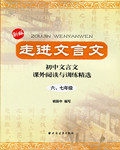题目内容
Who cares if money can’t buy you love? But it can still be your best friend forever. That’s one of the surprising findings in a new research paper, “The Power of Money”, published in me journal Psychological Science.
Like any best friend forever, money demonstrated to researchers its ability to soothe us, reduce our sense of social exclusion and even reduce life’s painful moments.
“I was surprised” says Katherine Vohs, one of the researchers and professor at the University of Minnesota’s Carlson School of Management. “The findings were surprising because no one had connected the meaning of money to pain. The money wasn’t buying the subjects more friends; it was only psychologically helpful.”
In the research ,students were told they would be participating in a test of finger dexterity(敏捷度). One group was given some paper money to count, while the other group was given blank pieces of paper. Once the counting was complete, all the test subjects were asked to dip their fingers into bowls of water heated to 122 degrees--roughly the temperature of a very hot bath.
Result? Those who had been counting money reported less pain than those who had not. Subjects also were asked about their feelings. Those who handled actual money reported feeling stronger even 10 minutes after they put down the cash.
Combined with previous experiments, the findings confirmed what researchers have long doubted, that money acts as a general panacea(万能药) in the brain, giving us social self-confidence and reducing physical pain without having to spend a dime on aspirin.
But can we get the same effect by using credit cards? “No, credit cards do not have the same effect, ” Vohs says. “They are scary for most people, and they in fact represent debt m many ways.” The findings could have an interesting effect in the business world, where recent trends have been to issue non-monetary rewards and bonuses instead of what was thought of as “cold, hard cash”.
1.The underlined word “soothe” in Paragraph 2 is the closest in meaning to“_________” .
A. encourage B. remind
C. calm D. trust
2.What’s Katherine Vohs’s attitude towards the result of the study?
A. He found it totally unexpected.
B. He had no doubt about it.
C. He thought it needed further experiments.
D. He thought it was not convincing.
3.What do we know about the students involved in the study?
A. They were divided into two groups according to their ages.
B. One group was given paper money while the other was given coins.
C. They were holding the money while dipping fingers into hot water.
D. Both groups were asked to dip fingers into hot water.
4.We can 1earn from the passage that_________.
A. the effect of money can only last until we put it down
B. money is both psychologically and socially helpful to us
C. the result of the research hasn’t been confirmed(证实)by experts
D. credit cards have the same effect on us as money
5.The last paragraph suggests that___________.
A. the recent trend in the business world is to give cash as rewards
B. employers should give non-monetary rewards to employees
C. cash is a better way to reward employees than credit cards
D. more and more employees prefer non-monetary rewards to cash
1.C
2.A
3.D
4.B
5.C
【解析】
试题分析:文章介绍了一个科学研究。没有人在乎金钱能否买来爱情,但它仍然可以成为你一生最好的朋友。这是发表在《心理科学》杂志上的一项研究论文《金钱的力量》得到的结果。研究证实,金钱不仅能在心理上,而且还能在身体上给人带来帮助。
1.reduce our sense of social exclusion and even reduce life’s painful moments”可知,金钱能减少我们的被社会排除在外的感觉,甚至能减轻痛苦,由此可知,soothe us的意思是“让我们冷静下来”,故选C。
2.I was surprised” says Katherine Vohs, ...The findings were surprising because no one had connected the meaning of money to pain.”可知,Katherine Vohs对研究结果感到惊讶,故选A。
3.all the test subjects were asked to dip their fingers into bowls of water heated to 122 degrees”可知,所有的学生都被要求把手指放进温度达到122度的热水里,故选D。
4.that money acts as a general panacea(万能药) in the brain, giving us social self-confidence and reducing physical pain without having to spend a dime on aspirin”可知,研究证实金钱充当着万能药的角色,给人以自信,并减少身体的疼痛,故选B。
5.credit cards do not have the same effect”可知,信用卡不能得到用现金所达到的效果,即给员工现金奖励比给银行卡更能提高他们的积极性,故选C。
考点:科学类短文阅读

 字词句篇与同步作文达标系列答案
字词句篇与同步作文达标系列答案 走进文言文系列答案
走进文言文系列答案